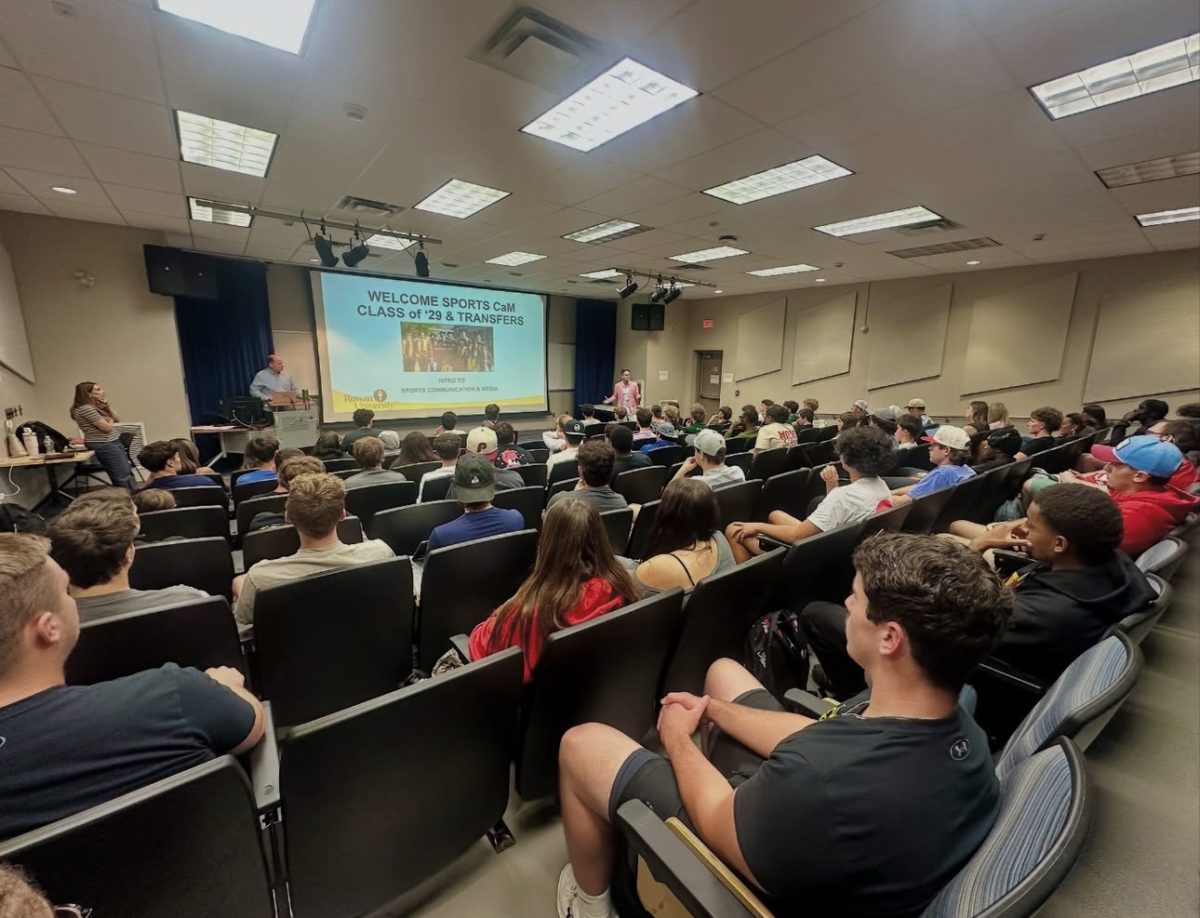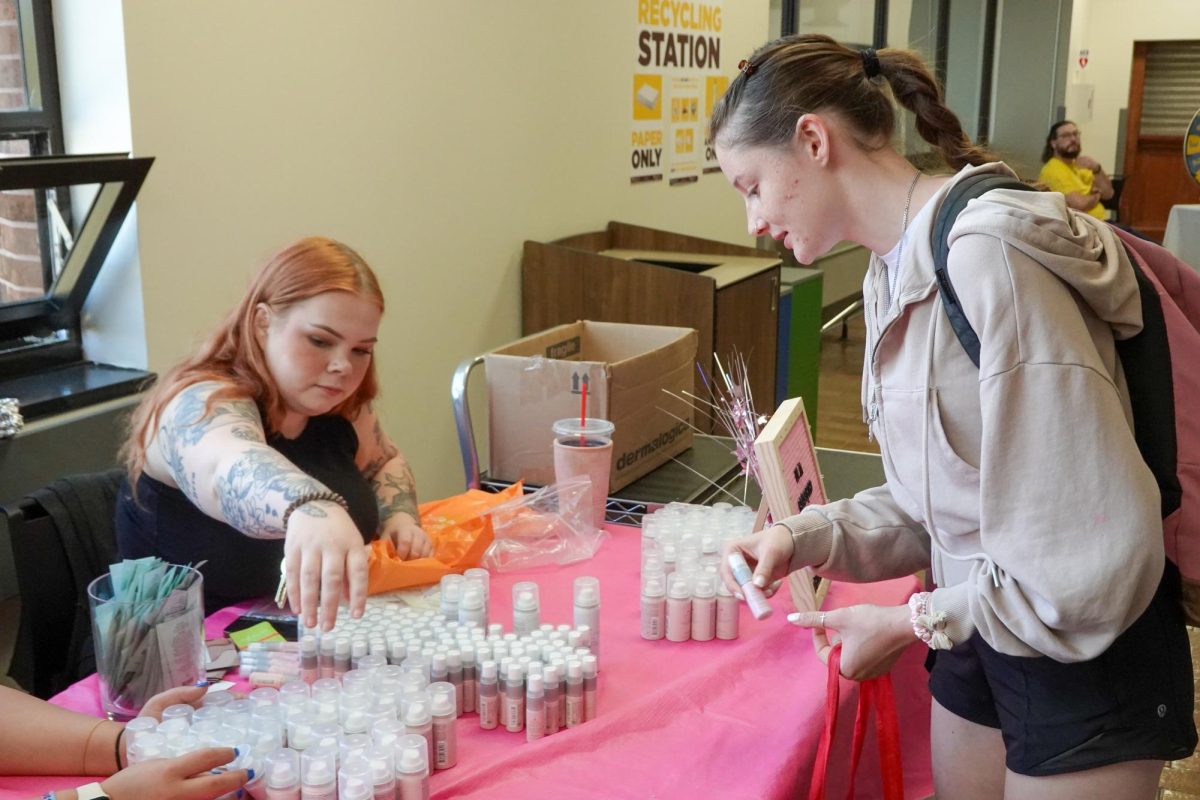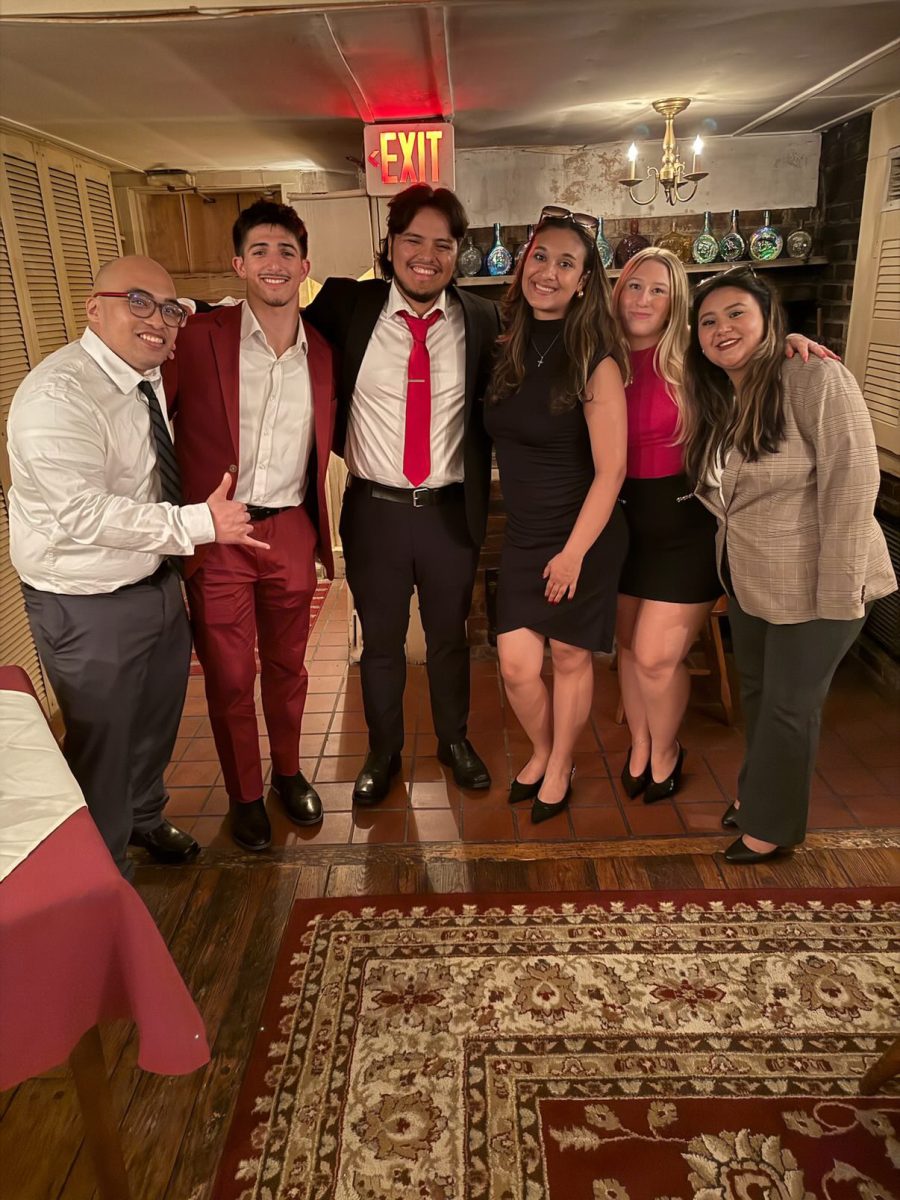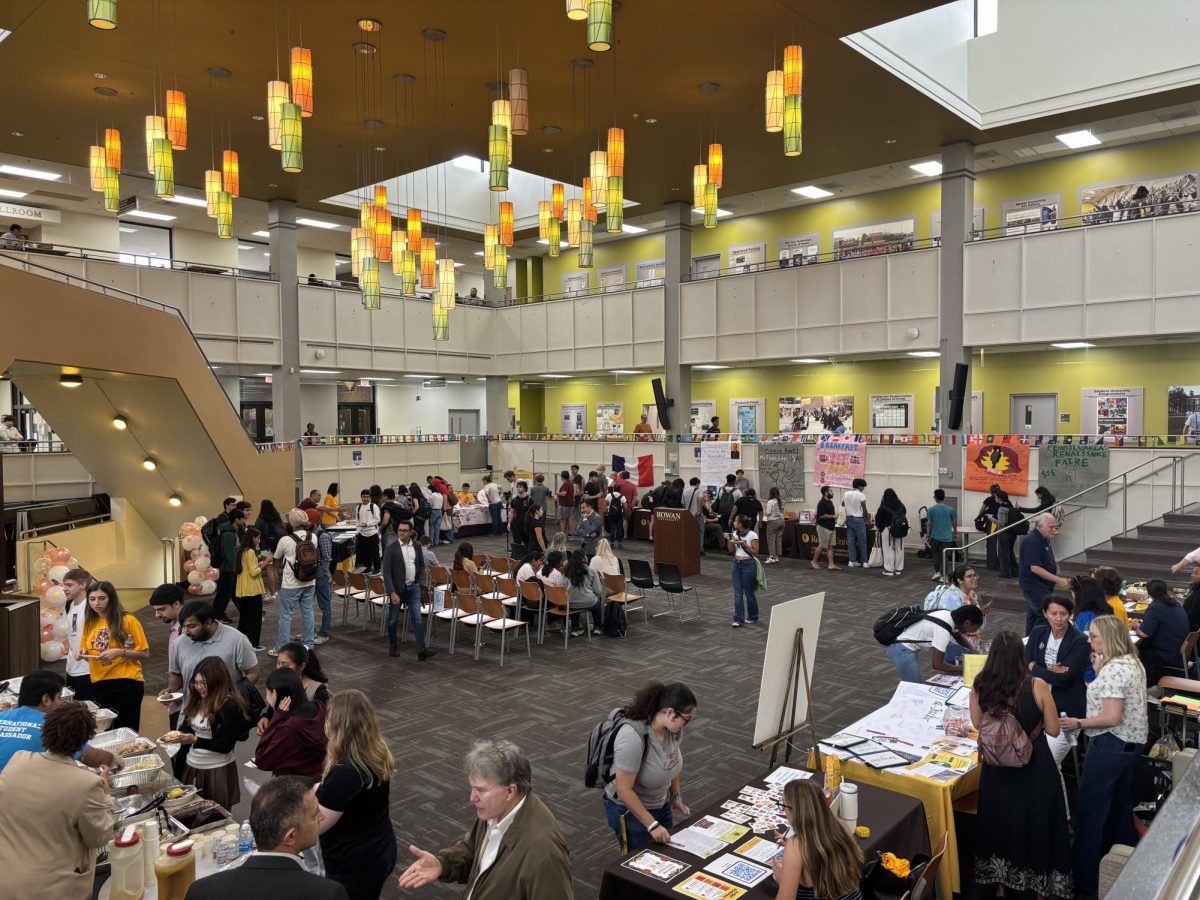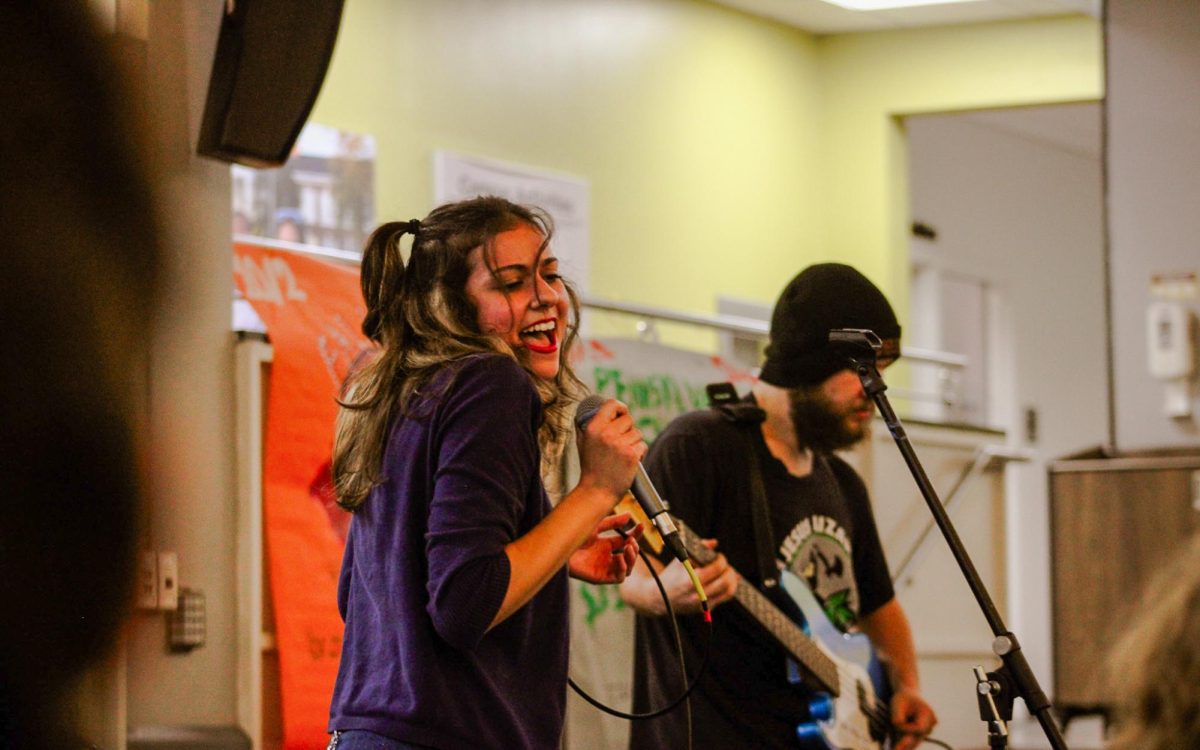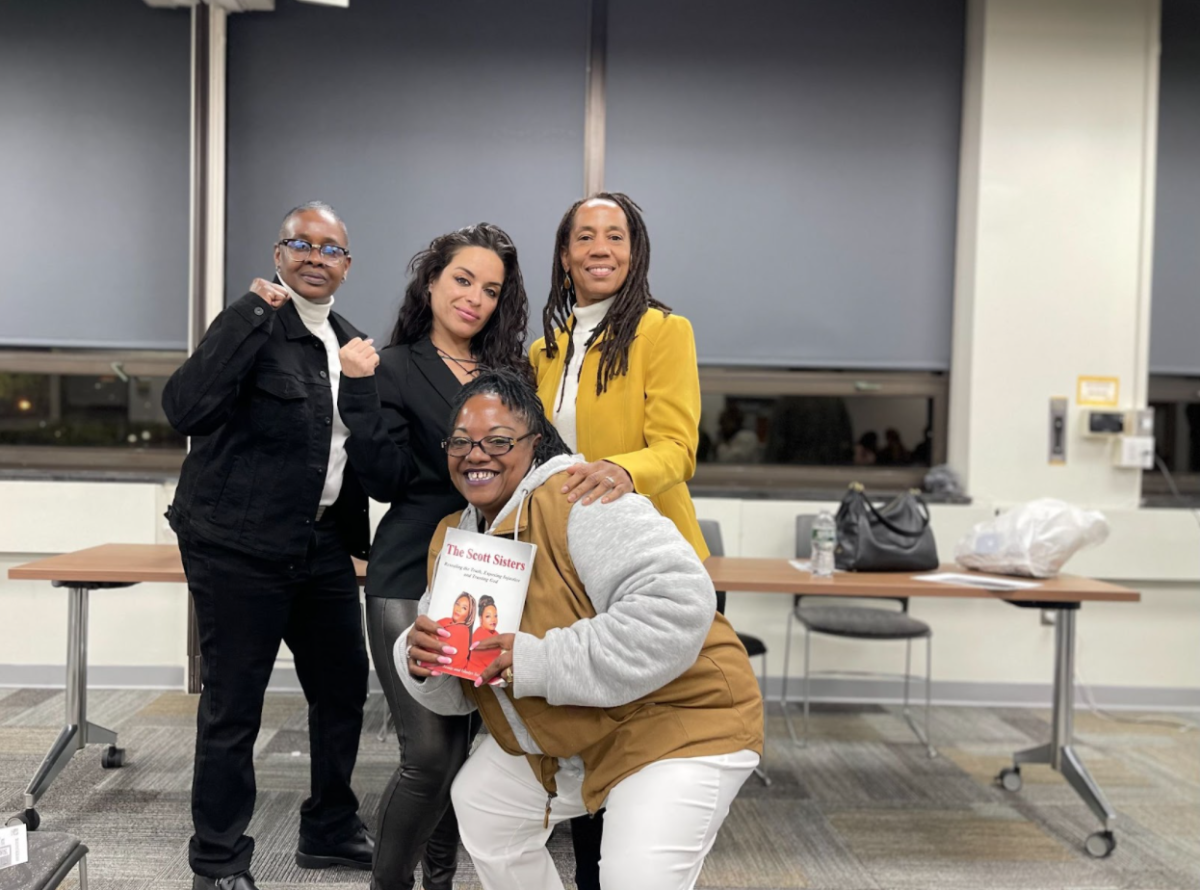A group of four formerly incarcerated women spoke at Rowan on March 23 at the Student Center to discuss their experiences with the prison industrial complex in honor of Women’s History Month.
The event was hosted by Rowan sociology professor Sandra Joy, who has been teaching at Rowan for 20 years. The event was sponsored by the Office of Social Justice and Inclusion and Conflict Resolution, the Sociology and Anthropology Department, and Prism.
First to speak was Cynthia Alvarado, a North Philly native who was raised by her immigrant parents from Puerto Rico.
In 2006, she was in a car accident with her uncle who died in the crash.
“I started to self-medicate after the accident,” Alvarado said. “A lot of people didn’t understand me, they were judgmental. I was hurting inside, and this went on for about a year.”
About a year later, Alvarado sought treatment for her addiction but began abusing Xanax when she was released.
“I substituted one pill for another,” Alvarado said.
One day, Alvarado went to the park with her cousin to get more pills.
“Something happened, my cousin killed someone. I never went that day to hurt anybody,” Alvarado said. “Later on that night I was arrested for murder, robbery and homicide,” Alvarado said. “I didn’t realize that the constitution, that as a little girl I loved so much, didn’t apply to me.”
Alvarado was sentenced to life without parole. While serving her sentence, Alvarado fought to stay strong for her kids and became a “jailhouse lawyer” to fight her case. After serving 11 years, Alvarado won her federal habeas corpus petition.
“My incarceration didn’t help me. If anything, it tried to destroy me,” Alvarado said.
Paulette Carrington shared her story next.
When she was 14 years old, Carrington’s mother died. A year later her father began seeing a woman who was abusive towards Carrington.
Carrington and the woman got into an argument.
“She cut me on the face,” Carrington said. “She was trying to cut my throat. I grabbed a knife, stabbed her son, he died. I went to jail. They gave me life with no possibility of parole.”
When she was arrested at 15 years old, Carrington was also pregnant, after being involved with a man who was 30 years old.
“I was bitter,” Carrington said. “I felt like I had to get something for what I’ve done, but I didn’t think I should have gotten a life sentence.”
Carrington’s son, who she described as wise at a young age, was shot and killed in New York when he was 18 in 1996.
“They tried to play that on a drive-by shooting, but we knew it was the officers that killed my son,” Carrington said. “He was with two other guys that got to running and the cops got to shooting, and they shot him in the back of his head.”
Carrington pushed on with the help of her faith.
“My main thing is that God got me through. There’s no one else in this world who could have got me through what I went through. There’s no way I would have made it without my God,” Carrington said, crying.
Carrington was released in 2017 after serving 40 years and began doing speaking engagements.
The third speaker was Gladys Scott, who was arrested in 1994 on Christmas Eve in Mississippi with her sister Jaime, who has since passed. Scott said they were arrested because their dad, who was a bootlegger, refused to “play ball” with the police.
The sisters were charged with armed robbery and were sentenced to carry out two life sentences without the possibility of parole. Scott was four months pregnant.
More details are mentioned in Scott’s book “The Scott Sisters: Revealing The Truth, Exposing Injustice, and Trusting God.”
“I didn’t know back then that God was preparing me for the woman that I am today,” Scott said.
After 30 years, Scott still meets with her parole officer every month.
The final speaker was Debbie Davis, formerly known as Debbie Africa, who was a part of the MOVE organization and is part of the MOVE 9 with her husband and her brother.
According to Vox, the organization is a “political and religious organization whose principles were anti-government, anti-technology, and anti-corporation.” MOVE was created by John Africa, also known as Vincent Leaphart.
The members lived together as a “family” and changed their last names to Africa in honor of their founder, the Vox article read. Protests were held at “zoos, pet stores, and political rallies; the group believed in composting, homeschooling, and a diet of raw foods, and spoke out against war and police brutality.”
Tensions between MOVE and the city escalated in 1978 when the organization “engaged in a 15-month standoff” when the mayor, Frank Rizzo ordered the group to be removed from their home. This resulted in the death of an officer, which led to“nine members of MOVE, nicknamed the MOVE 9, were controversially convicted and given life sentences,” according to the Vox article.
In 1985, the new home of the MOVE organization was bombed, killing 11 people, including John Africa and five children. The explosion left over 250 people homeless.
Davis was 22 years old, eight months pregnant, and left behind a two-year-old for her mother to help raise when she went to prison. Davis wasn’t released until 2018, while her husband was released shortly after, finishing a 40-year sentence.
Davis names her mom, who passed away in 2010, as her unsung hero.
“Incarceration doesn’t just stop at the person that’s being incarcerated, it’s a breakdown. It is a threat. It definitely is a killer. It doesn’t just stop at the person, it trickles down,” Davis said.
For comments/questions about this story tweet @TheWhitOnline or email [email protected].




